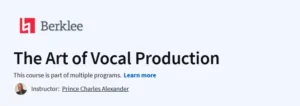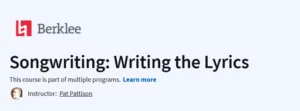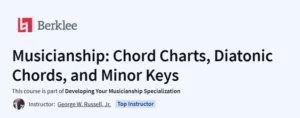What you will learn in The Modern and the Postmodern (Part 1) Course
- Modernity’s Emergence: Explore how the concept of “the modern” developed at the end of the 18th century in European philosophy and literature.
- Philosophical Foundations: Study the works of Immanuel Kant and Jean-Jacques Rousseau to understand philosophy’s role in modernity and progress.
- Enlightenment and Inequality: Analyze Rousseau’s Discourse on the Origins of Inequality to examine the relationship between knowledge and politics.
- Revolutionary Thought: Delve into Karl Marx’s ideas on alienation, class struggle, and revolution.
- Artistic Movements: Investigate how modernism influenced art, focusing on works like Flaubert’s Madame Bovary.
- Scientific Revolution: Understand Charles Darwin’s contributions to reimagining the world without a predetermined goal for change.
- Aesthetic Intensity: Examine the works of Charles Baudelaire and Friedrich Nietzsche to explore the embrace of intensity over the search for absolute truths.
- Artistic Expression: Survey how painting evolved towards a focus on the canvas’s surface, moving away from realistic representation.
Program Overview
Philosophy, Modernity, and Intellectual History
⏳ 1 hour
- Introduction to the relationship between philosophy and modernity, exploring key thinkers like Kant and Rousseau.
The Enlightenment and Inequality
⏳ 1.5 hours
- Study of Rousseau’s Discourse on the Origins of Inequality and its implications for the development of modern political thought.
From Enlightenment to Revolution
⏳ 1.5 hours
- Exploration of Marx’s theories on class struggle, alienation, and the role of revolution in modernity.
Modernism and Art
⏳ 2 hours
- Analysis of modernism in art and literature, including Flaubert’s Madame Bovary and the evolution of artistic expression.
Re-imagining the World
⏳ 2 hours
- Examination of Darwin’s contributions to reshaping our understanding of nature, change, and progress.
Intensity and Subjectivity
⏳ 1.5 hours
- Study of Nietzsche and Baudelaire’s embrace of intensity, subjectivity, and the rejection of absolute truths in art and philosophy.
Art and Abstraction
⏳ 2 hours
- Exploration of how painting evolved towards abstraction, focusing on new approaches to surface and representation.
Get certificate
Job Outlook
Academic Careers: Ideal for those pursuing studies in philosophy, history, or literature.
Cultural Heritage: Beneficial for roles in museums, archives, and cultural institutions.
Publishing and Writing: Useful for writers and editors focusing on historical or philosophical content.
Specification: The Modern and the Postmodern (Part 1)
|
FAQs
- Modernism emphasizes reason, progress, and universal truths.
- Postmodernism challenges universal truths, embracing subjectivity and multiple perspectives.
- Modernism focuses on order and structure, postmodernism on fragmentation and diversity.
- Understanding both helps interpret art, literature, and philosophy across eras.
- No prior study is strictly required; the course introduces core ideas clearly.
- Familiarity with cultural history or literature can help but isn’t mandatory.
- Key skills are curiosity, critical thinking, and openness to complex concepts.
- Exercises focus on reflection and analysis, not memorization of facts.
- Shapes architecture, literature, visual arts, and media today.
- Encourages questioning authority, embracing diversity, and valuing multiple narratives.
- Affects design, advertising, and digital content by blending styles and perspectives.
- Helps analyze cultural trends and social phenomena critically.
- Teaches analytical thinking by comparing modern and postmodern perspectives.
- Improves interpretation of texts, images, and cultural artifacts.
- Strengthens argumentation and essay-writing skills.
- Encourages questioning assumptions and exploring alternative viewpoints.
- Primarily theoretical, focusing on concepts, movements, and philosophical ideas.
- Includes examples from art, literature, and cultural history for context.
- Encourages practical exercises in analysis and interpretation.
- Students can apply insights to critique modern media and cultural products.





